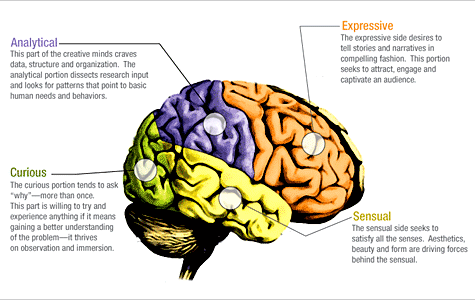
Readers who have not previously considered the psychology of creativity might first wish to read my summary of Sternberg's theory of creativity at the end of this document. In short, the ability to be creative is the amalgamation of several different kinds of intelligence and personality traits. Creativity is an amazingly complex subject. There are many books about the psychology of creativity in artists, but relatively little about creativity in scientists and engineers. However, there are (1) a number of biographies of scientists, which give some light on creativity in scientists, and (2) some books on creativity in mathematicians. The following are my own conclusions and comments about creativity, based on:
- my observations of colleagues and students, some of whom were highly creative, but others were not creative, and asking myself why the differences in creative output,
- my personal experiences,
- my reading biographies of scientists, mathematicians, and composers of music
- my reading psychology books on creativity
It is obvious that before one can do creative science and engineering, one must have some technical knowledge of facts, laws, and methods (e.g., study of physics, chemistry, calculus, differential equations, statistics, computer programming, etc.). If one compares highly creative scientists and engineers with their plodding, ordinary colleagues, one finds essentially the same kinds of intelligence and knowledge in both groups. Therefore, I conclude that it must be the personality traits that distinguish creative from noncreative people

No comments:
Post a Comment